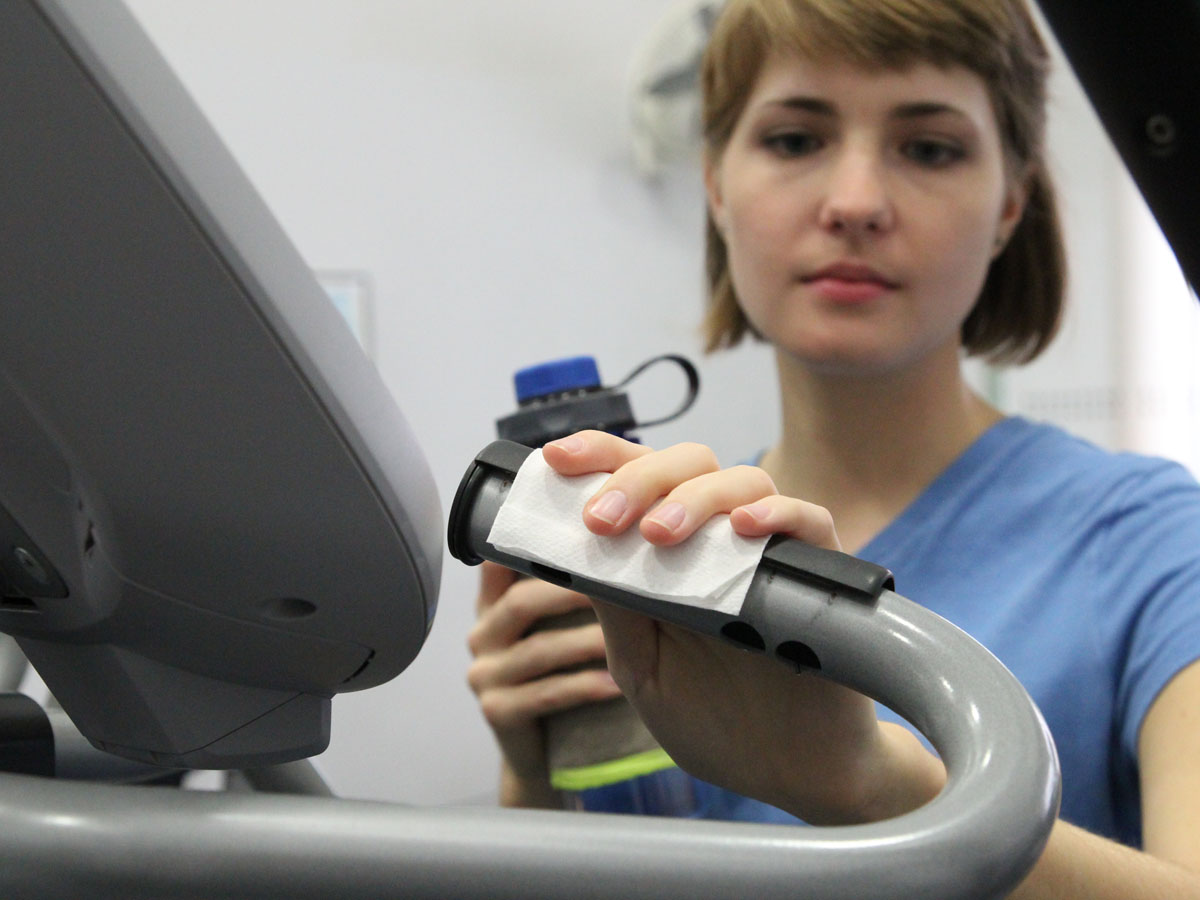Gyms are sweaty, wet places and they’re the perfect place for coronavirus spread out or let’s say n number of infection. Well, that doesn’t mean you stop going to the gym, you’ve got to be super careful at the gym. You’ve got to take precautions and stay well-informed.
Health officials have cautioned against close physical contact, such as shaking hands, and suggested that anyone who experiences flu-like symptoms stay home.

Gyms: Growing Bed for Infection
- With many gyms being enclosed and soundproof, the air flow is of substandard quality, with higher levels of carbon dioxide. One reason, why some people can’t stop yawning and / or feeling sleepy, while others cause or catch airborne infections, which can range from the common cold and flu to tuberculosis.
- Handlebars on elliptical machines, treadmills, stationary bicycles and weight machines are among the dirtiest places in gyms.
- Another thing to remember is that despite regular washing, shared towels are major carriers of germs. Many of us wipe down weights, machines and benches after use, but it’s also important to do so before you start your exercise. All,gym equipment contains micro-organisms, particularly fungi that grow and become contagious, hence it is recommended to clean all surfaces before using them.
- Dr Lyssette Cardona, a board-certified infectious diseases consultant at Cleveland Clinic Abu Dhabi, says there can be some fairly serious consequences when gyms don’t take care of hygiene. MRSA, which used to be limited to hospitals, is now a common infection that can be found in places such as the gym. “Most people have not heard of a staph infection, but it is one of the most common health risks in the gym.
- Gym-goers should remember that respiratory viruses are easily spread by coughing and sneezing. Maintain distance.
- Sharing other personal items such as water bottles and shoes.
- Your gym bag can also be a haven for bacteria.
- Gym clothes can harbour lots of bacteria due to sweat and because of the interaction between gym apparatus and public changing rooms. Touching fitness machines, wiping your sweaty head on your t-shirt, or sharing a barbell can transfer germs.
- Also, public toilets are hotbed of germs is the gym.
- Sweaty exercise mats and rusty dumbbells as well as communal showers and water dispensers.
The list is endless, giving enough reasons to take extra care if visiting a Gym for a workout routine

Precautions Against Gym Infection
- Try going to well-ventilated gyms or gyms that are bigger in size.
- 20 per cent of gym goers commit to never washing their hands at the gym. Wash your hands regularly with soap and water after every session.
- Avoiding close contact with other members while exercising. Wear masks while in the gym.
- Skip the gym if you’re feeling even slightly under the weather as the body is more prone to picking up an infection when the immune system is weakened.
- Weights, equipment, handles and other surfaces must be cleaned daily, both before and after use.
- Mats used in group classes should be sanitised after each use.
- Showers and changing rooms should be wiped down and sanitised several times a day.
- It is strongly recommended that people follow respiratory etiquette: cover the nose and mouth with a tissue when coughing or sneezing, and wash hands frequently or use hand hygiene products often, especially after using equipment. Use mask if suffering from running nose or cough. The flu vaccine is also strongly recommended to avoid catching the virus.
- Wear clean shoes, to prevent catching something that is spread by skin contact.
- Wash your gym towels everyday.
- Regularly treat your gym bag and belongings with a disinfectant spray. The bags touch gross surfaces all the time and is literally the home for all our filthy and sweaty possessions.
- Change your clothes after each workout session. Aim to shower within an hour. And do not sleep without showering. Many bacterial, as well as mycotic (fungal) infections can spread in damp conditions, such as on sweaty clothes and in between the toes, as is the case with athletes foot.
With cases of corona-virus rapidly on the rise, stay alert and take precautions.
Disclaimer
The Content is not intended to be a substitute for professional medical advice, diagnosis, or treatment. Always seek the advice of your physician or other qualified health provider with any questions you may have regarding a medical condition.